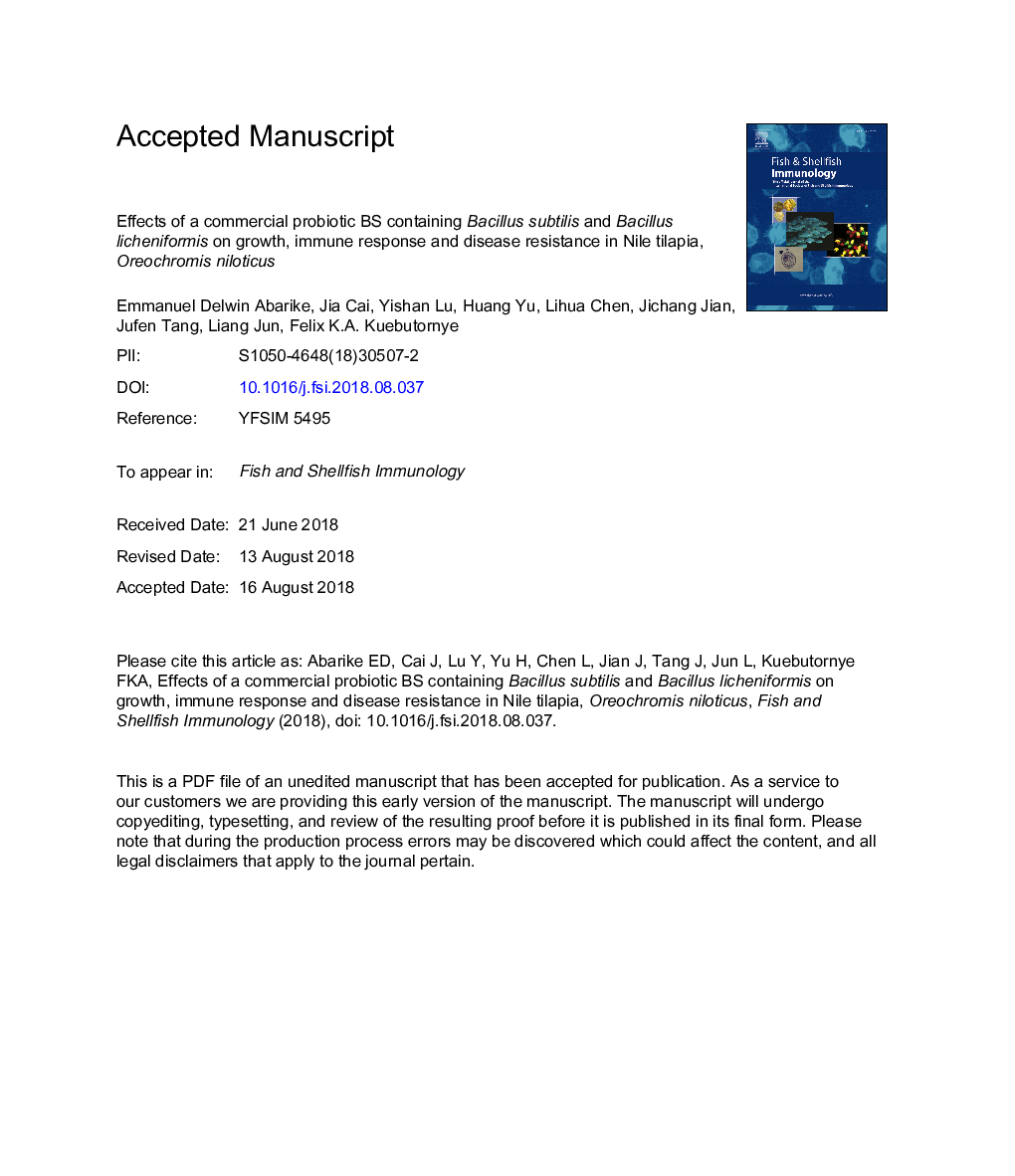| Article ID | Journal | Published Year | Pages | File Type |
|---|---|---|---|---|
| 8498072 | Fish & Shellfish Immunology | 2018 | 41 Pages |
Abstract
The present study evaluated a commercial probiotic designated as BS (a mix of B. subtilis and B. licheniformis) to ascertain its efficacy and the dose necessary to improve growth, immune response, and disease resistance in tilapia, Oreochromis niloticus. Fish (53.01â¯Â±â¯1.0â¯g) were fed with a basal diet supplemented with 0 gkg-1 (CT), 3 gkg-1 (BS3), 5 gkg-1 (BS5) 7 gkg-1 (BS7) and 10 gkg-1 (BS10) of the probiotic BS for 4 weeks. At the end of the feeding trial, the weight gain, specific growth rate, and feed conversion ration were enhanced in all probiotic BS enriched groups but with better (Pâ¯<â¯0.05) improvement in the BS10 group. The lysozyme, protease, anti-protease, superoxide dismutase activities, and immunoglobulin M level were significantly (Pâ¯<â¯0.05) highest in the BS10 group in both serum and skin mucus. Enhanced (Pâ¯>â¯0.05) catalse activity in all treated groups in the serum and myeloperoxidase activity in the B10 group in both serum and skin mucus were observed. The expression of C-lysozyme, heat shock protein 70, β-defensin, transforming growth factor beta, and small body size decapentaplegic homolog 3, genes in the mid-intestines and the head-kidney were up-regulated in all treated groups with the BS10 group provoking the highest up-regulation (Pâ¯<â¯0.05). After challenge with Streptococcus agalactiae, cumulative mortality was 80%, 47.5%, 42.8%, 30%, and 20% for fish fed with CT, BS3, BS5, BS7, BS10 groups respectively. In conclusion, probiotic BS application at 10 gkg-1 (BS10) can be considered to improve growth and immunological status in tilapia farming.
Related Topics
Life Sciences
Agricultural and Biological Sciences
Aquatic Science
Authors
Emmanuel Delwin Abarike, Jia Cai, Yishan Lu, Huang Yu, Lihua Chen, Jichang Jian, Jufen Tang, Liang Jun, Felix K.A. Kuebutornye,
